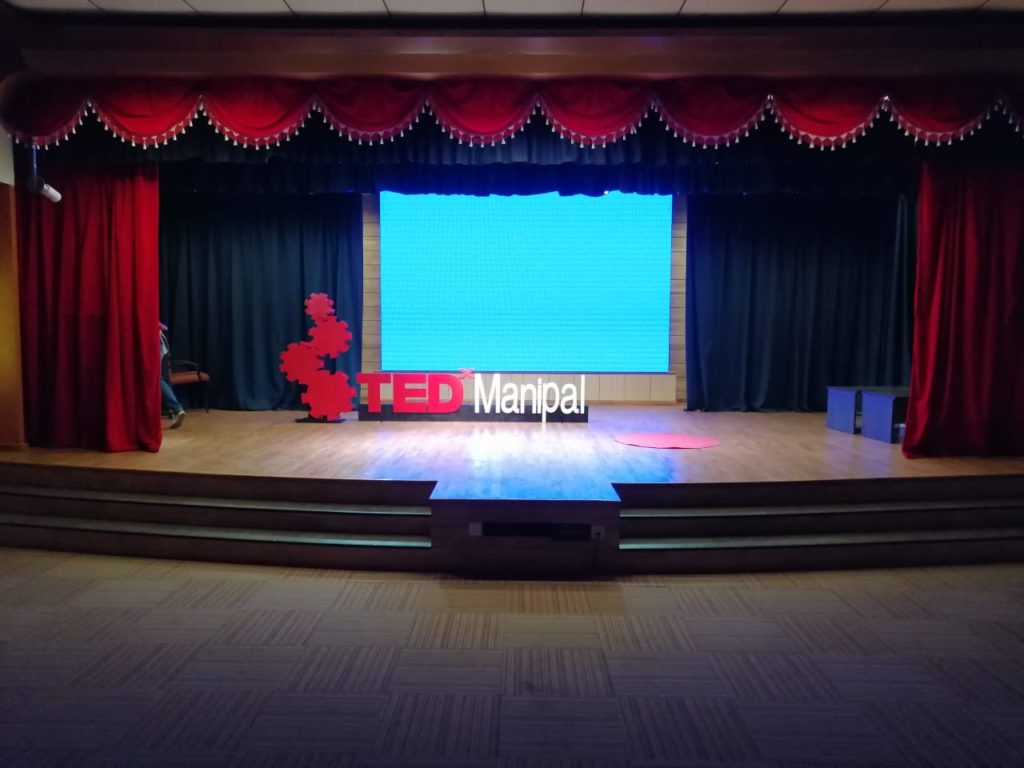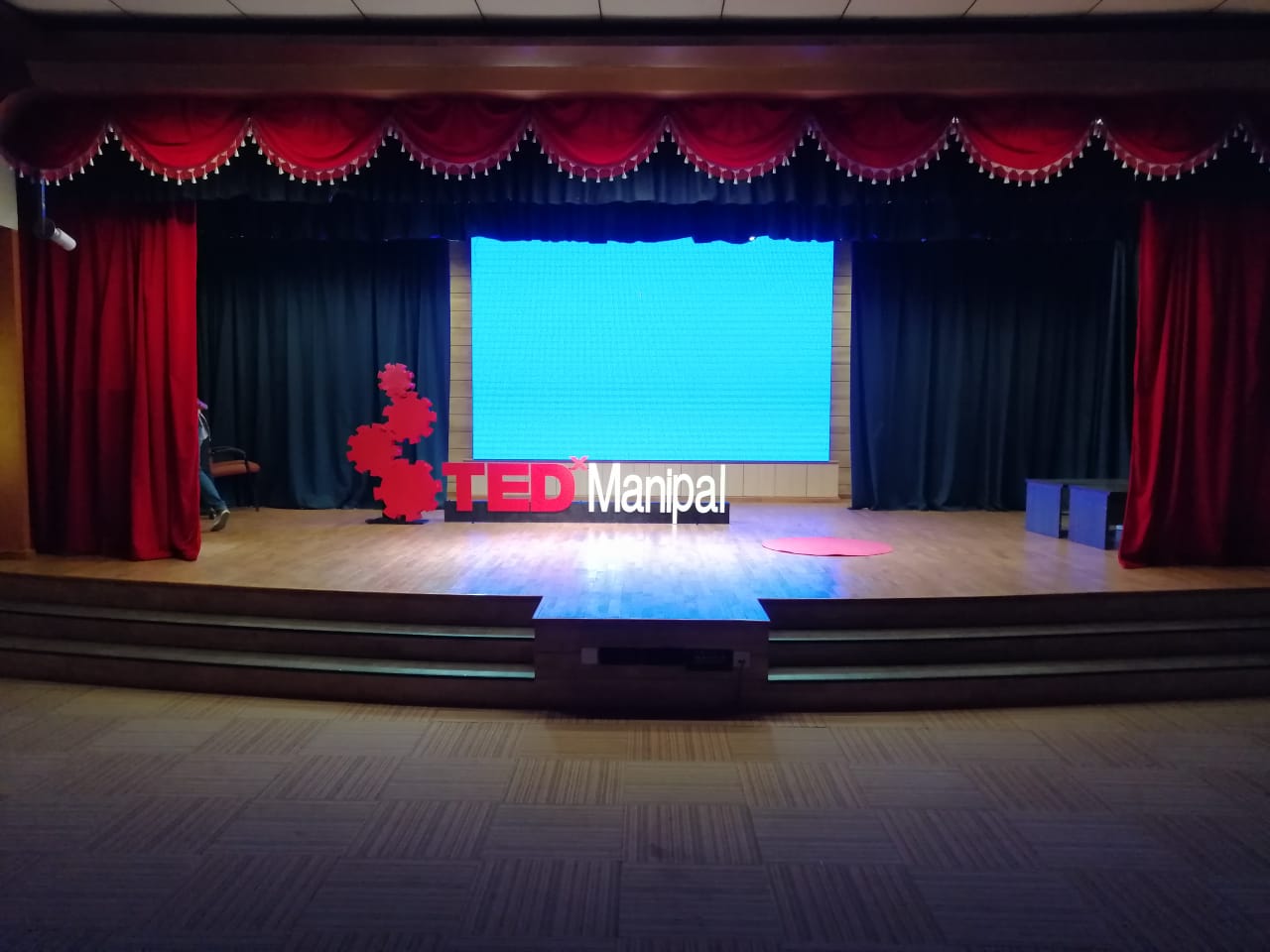
The biggest platform for the most powerful and impactful talks, TedX is back at Manipal for its third edition and has brought a stellar lineup of speakers with it. The diverse speakers range from teachers, authors to researchers and entrepreneurs. Bringing myriad relevant topics to the foreground like child sexual abuse and spreading education in developing countries, this event seems promising in sparking mindful conversations and connections.
We at MTTN had the opportunity to interview Mr Srikaanth Viswanathan, the famous 47-year-old open swimmer who went on to set an Indian record when he swam across the English channel in just 14 hours. Being one of the oldest swimmers to have achieved this commendable feat, he had to battle various hurdles along the way but his passion and dedication led him to conquer his lofty goal in finesse.
MTTN: What is it about physical exertion and pushing your body to the brink
that is appealing to you?
Quite frankly, I was more worried about how my body would adapt to such a gruelling training since I started so late. But I realized during this journey that
age is just a number and it’s all in our mind. During the initial days
of training, it was quite tough with some of the workouts but it is
amazing to see how the body adapts to the conditions when the mind is
determined to accomplish something. As I set taller goals, be it in
terms of the duration of swims or speed of swim or the distance, I
realized that the previous goals became much easier ones to
accomplish. So, it was all about removing the mental block. Of course,
the highs from meeting such goals were a big motivator. And sometimes,
when I couldn’t meet a particular target, I used to be disappointed
and but hit the pool again with better preparation and succeeded.
MTTN: What has been the most challenging moment of your adventures with open
swimming so far?
Interesting question as I had many such moments. To pick one, when I
was doing the 4 person relay of the English Channel in 2016, we started
the swim around 11 am and by the time we approached French shores, it
was well past midnight. I was fast asleep thinking that the previous
swimmer would finish the swim and I would not have to get in next. It so
happened that it was my turn to finish the swim and it was 2 AM. I was
awakened by my pilot asking me to be ready to swim in ten minutes. I was
totally shocked and was feeling very cold too. It was pitch dark when I
swam to French shores without any escort or friends by my side (our boat
was anchored about 500 metres from the shore). I had no clue what to expect
in that darkness. Some have hard sharp rocks, some had wild animals too. It was a very scary
moment.
MTTN: Can you shed a little light on what your training regime was like?
For almost a year, I would wake up at 4 AM and hit the pool at 5 AM.
I would swim for 2 hours—some days it would be lots of drills,
sometimes non-stop swimming. I would try to do a long swim like ten kilometres or
six hours swim every few weeks during the weekends. Additionally, I would spend 3-4
days at the gym for strength training in the evenings.
In the weeks leading up to my big swim, I was doing many long swims in
Dover in the cold waters. I had clocked 205 kilometres in that month. While
I had a plan & worked towards that, I was very cognizant of my body’s
response. If I felt tired and did not feel up to it, I would skip that
day’s training. That is the key to sustaining the motivation and
remaining injury free.
MTTN: How did your support system push you on your worst days?
My family was my biggest support, particularly my mom and my wife. They
always gave a patient hearing to my problems, encouraged me to rest
enough and gently nudged me to push harder the next day. It would have
been impossible to stay focused for such a long duration without their
support and backing. I knew that they were very worried about my
attempt, and the fear of exhaustion and hypothermia played on their minds
heavily.
MTTN: What is it about the English channel in particular that made you want
to cross it?
In 2008, I learnt that the English Channel was like the Mount Everest
of swimming. There are more people who have climbed Everest than
those who have successfully swam across the channel and it was considered
to be one of the most gruelling yet iconic swims in the world for any open
water swimmer. Given this background, I started dreaming about
attempting it one day, even as I was just learning the sport. I always
doubted if I would be able to do it ever but at the same time deep
down was yearning to attempt it one day may be as the ultimate test of
mental and physical endurance which made me want to do it just to move
out of my comfort zone.
MTTN: How do you think one’s age comes to play while pursuing such goals?
Until a few years ago I too believed that we should pursue things
according to our age. But in the last few years, I learnt that age is
just a number. All that matters is the mind. When the mind is
committed to achieving something, the body just follows it.
MTTN: What is the biggest takeaway from your achievements and experiences
that you can share with college students?
We all have dreams. But what matters is what we do with those dreams.
How we convert them into goals and get obsessed with it till we
achieve it. I am not just referring to sports alone. I strongly
believe that we can achieve whatever we wish as long as we commit to
it, work hard and make those sacrifices. As Paulo Coelho says in his
book Alchemist, the whole universe conspires to make your dream come
true if you really work hard and long for it.
MTTN: What would you advise aspirants of a similar feat to adopt or help
them to start out?
Firstly, try to gather as much information as possible about the
efforts. It’s as important to talk to people who could not succeed
in their attempt to understand what failed them, as it is to speak with those who
succeeded in their efforts. Derive an action plan with a timeline to
achieve that goal. Make sure to set up intermediate goals along the
way to reassure that you are going in the right direction. Make sure
you prioritise your goal among other things. Else it will never get
the focus and attention from you.
Mrs Gayathri Prabhu is a well-renowned author of three novels and a memoir “If I had to Tell It Again”. She has received several accolades for her work in the literary field including the R K Narayan award. She teaches at the Manipal Centre for Humanities and steered our college to establish the Student Support Centre.
MTTN: Mental Health is something that we all should cherish and treasure, but more often than not poor mental health can feel like a burden that pegs us back and slows us down. Why would you say that mental health is important?
I think we should be careful about talking about mental health either as a treasure or a burden. There are several complex situations and conditions in mental health – as a society, we are still learning how to keep an open mind, how to communicate these complexities. We should also remember that any notion of health, physical or mental, is a spectrum—we all struggle at various points in our lives, and we definitely need love, support and resources. Each individual will articulate their own parameters of well-being and we have to respect that. If mental health is not important, then I don’t know what is.

Leave a Reply
You must be logged in to post a comment.